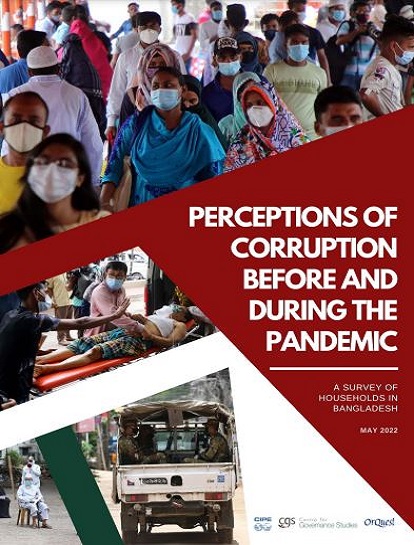PERCEPTIONS OF CORRUPTION BEFORE AND DURING THE PANDEMIC: A SURVEY OF HOUSEHOLDS IN BANGLADESH
24 March 2022
Introduction
Bangladesh has a score of 26 on Transparency International’s Corruption Perception Index. This is an improvement from the country’s ranking in the early 2000s, but is far from ideal. Today, corruption is a reality and affects private sector’s prospects for growth and contribution to democratic governance in Bangladesh. While perceptions, effects, and dynamics of corruption in the public sector are well documented, there remains a need for hard data that informs a baseline level of cohesive private sector stance on corruption. This survey of household perceptions of corruption before and during the pandemic is part of an effort by the Centre for Governance Studies (CGS) and its partner the Center for International Private Enterprise (CIPE) to address this gap, and will be followed by a survey of SME perceptions of corruption across Bangladesh.
The survey aims at diagnosing the problem of corruption, and offering actionable information, including but not limited to the forms of corruption, major impediments created by it, most common types of corruption experienced across the country, and existing behavior on corruption, and ways of altering it. It highlights specific problems faced at the grassroots level from a policy perspective and documents understanding of the effects of corruption on households at the sub national level, including the nature and scope of corruption experienced during the pandemic response period. A Bangladeshi survey firm OrgQuest conducted the survey among 1231 nationally representative adults through the Computer Assisted Telephone Interview (CATI) method in the latter half of 2021, with respondents selected randomly through the Resilient Distributed Datasets (RDD) system.
